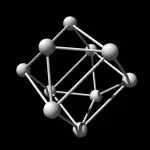Kava tea, derived from Piper kava roots, is a popular natural caffeine replacement known for its calming and anxiety-relieving properties. Rich in kavalactones, it interacts with brain receptors to promote tranquility and reduce stress without jitteriness. As an effective alternative to coffee and energy drinks, kava tea supports relaxation and digestive health, appealing to those seeking lower caffeine intake or herbal options for managing anxiety. Always consult a healthcare provider before consuming new supplements.
“Unwind and find your zen with Kava Tea—a herbal delight that’s taking the wellness world by storm as a powerful natural caffeine replacement. This ancient beverage, with roots in Pacific Island cultures, offers more than just a refreshing sip. In this comprehensive guide, we explore how Kava Tea promotes relaxation and anxiety relief, delving into its unique origins, scientific backing, and its potential to revolutionize your daily routine as a sustainable alternative to caffeinated drinks.”
- What is Kava Tea? An Overview of Its Origins and Benefits
- Understanding Anxiety and Why a Natural Approach is Desirable
- The Science Behind Kava's Relaxing Effects: Active Compounds and Their Mechanisms
- Kava Tea as a Sustainable Alternative to Caffeine: Lowering Stress without Jitters
- Incorporating Kava into Your Routine: Preparation, Dosage, and Potential Side Effects
What is Kava Tea? An Overview of Its Origins and Benefits
Kava tea, derived from the roots of the Kava plant (Piper kava), is a traditional herbal beverage with a rich history dating back centuries in the Pacific Islands. Often referred to as “the calmative of the South Pacific,” it has been an integral part of cultural and ceremonial practices across various regions, including Fiji, Samoa, and Hawaii. This natural caffeine replacement is celebrated for its ability to promote relaxation and alleviate anxiety without the jitters associated with conventional stimulants.
The benefits of kava tea extend beyond its calming effects. It contains a unique combination of compounds, such as kavalactones, which are believed to interact with certain receptors in the brain, fostering a sense of tranquility. This herbal drink is also known for its potential anti-inflammatory properties and has been used traditionally to support digestive health. With its growing popularity worldwide, kava tea offers a soothing alternative for those seeking relaxation without relying on artificial means, making it an attractive option as a natural caffeine replacement.
Understanding Anxiety and Why a Natural Approach is Desirable
Anxiety, a prevalent mental health concern, can manifest in various forms, from occasional stress to debilitating panic attacks. It often arises from a combination of genetic predisposition, environmental triggers, and neurochemical imbalances. While traditional treatments like medication and therapy are effective for many, some individuals seek alternative approaches due to side effects or personal preferences.
A natural caffeine replacement like kava tea offers an appealing solution. Kava, derived from the root of the Piper kava plant, has been used for centuries in the Pacific Islands for its calming properties. Its active compounds, known as kavapyronans, interact with neurotransmitters in the brain to promote relaxation without the jitteriness associated with caffeine. Opting for a natural approach allows individuals to manage anxiety symptoms while potentially avoiding the side effects of synthetic alternatives, making kava tea an attractive option for those seeking a peaceful mind.
The Science Behind Kava's Relaxing Effects: Active Compounds and Their Mechanisms
Kava tea, derived from the roots of the Piper kava plant, has gained popularity as a natural alternative to combat anxiety and promote relaxation. The science behind its soothing effects lies in its unique blend of active compounds that interact with the body’s nervous system. One of the key players is kavalactones, a group of chemical compounds responsible for many of kava’s therapeutic properties. These compounds bind to specific receptors in the brain, influencing neurotransmitters like GABA (gamma-aminobutyric acid), which plays a crucial role in regulating mood and reducing anxiety.
The mechanisms behind kava’s relaxation effects are multifaceted. It not only enhances GABA activity but also interacts with other neurotransmitter systems, such as serotonin and dopamine, contributing to its calming effect. Additionally, kava’s anti-inflammatory properties may help reduce stress hormones and promote overall mental well-being. As a natural caffeine replacement, kava offers a gentle stimulation without the jittery side effects often associated with coffee or energy drinks, making it an appealing option for those seeking a peaceful respite from anxiety.
Kava Tea as a Sustainable Alternative to Caffeine: Lowering Stress without Jitters
Kava tea, derived from the root of a plant native to the Pacific Islands, offers a compelling alternative to traditional caffeine-rich beverages. Unlike coffee or energy drinks, kava tea is known for its calming properties rather than stimulating effects. This makes it an excellent choice for those seeking a natural caffeine replacement that promotes relaxation without the jitters associated with other stimulants.
As a sustainable option, kava tea provides a unique way to lower stress and anxiety levels. Its gentle yet effective soothing qualities make it ideal for individuals looking to reduce their caffeine intake or explore more herbal options. By opting for kava tea, folks can enjoy a peaceful respite from the hustle and bustle of daily life, all while embracing a time-honored, natural solution to stress management.
Incorporating Kava into Your Routine: Preparation, Dosage, and Potential Side Effects
Kava tea, a popular herbal beverage with a rich history, offers a calming experience as a natural caffeine replacement. Incorporating it into your routine is straightforward. The dried kava root is typically prepared by steeping it in hot water for several minutes to extract its soothing compounds. Many enjoy it as an evening ritual, allowing the tea’s relaxation properties to unwind after a long day.
When considering dosage, start with smaller amounts to gauge your sensitivity. Typically, 1-2 teaspoons of ground kava root per cup of boiling water is a good starting point. Consume it up to three times daily for optimal anxiety relief without significant side effects. However, be mindful that excessive consumption may lead to mild digestive issues or drowsiness in some individuals. As with any herbal supplement, consulting with a healthcare professional is advisable, especially if you have underlying health conditions or are taking other medications.
Kava tea emerges as a promising herbal alternative for those seeking relaxation and anxiety relief without relying on synthetic compounds or traditional stimulants. As a natural caffeine replacement, it offers a sustainable approach to managing stress, providing a calming effect without the jitters often associated with caffeinated drinks. By understanding the science behind its relaxing properties and incorporating kava into daily routines, individuals can experience its benefits as a holistic solution for promoting mental well-being.





